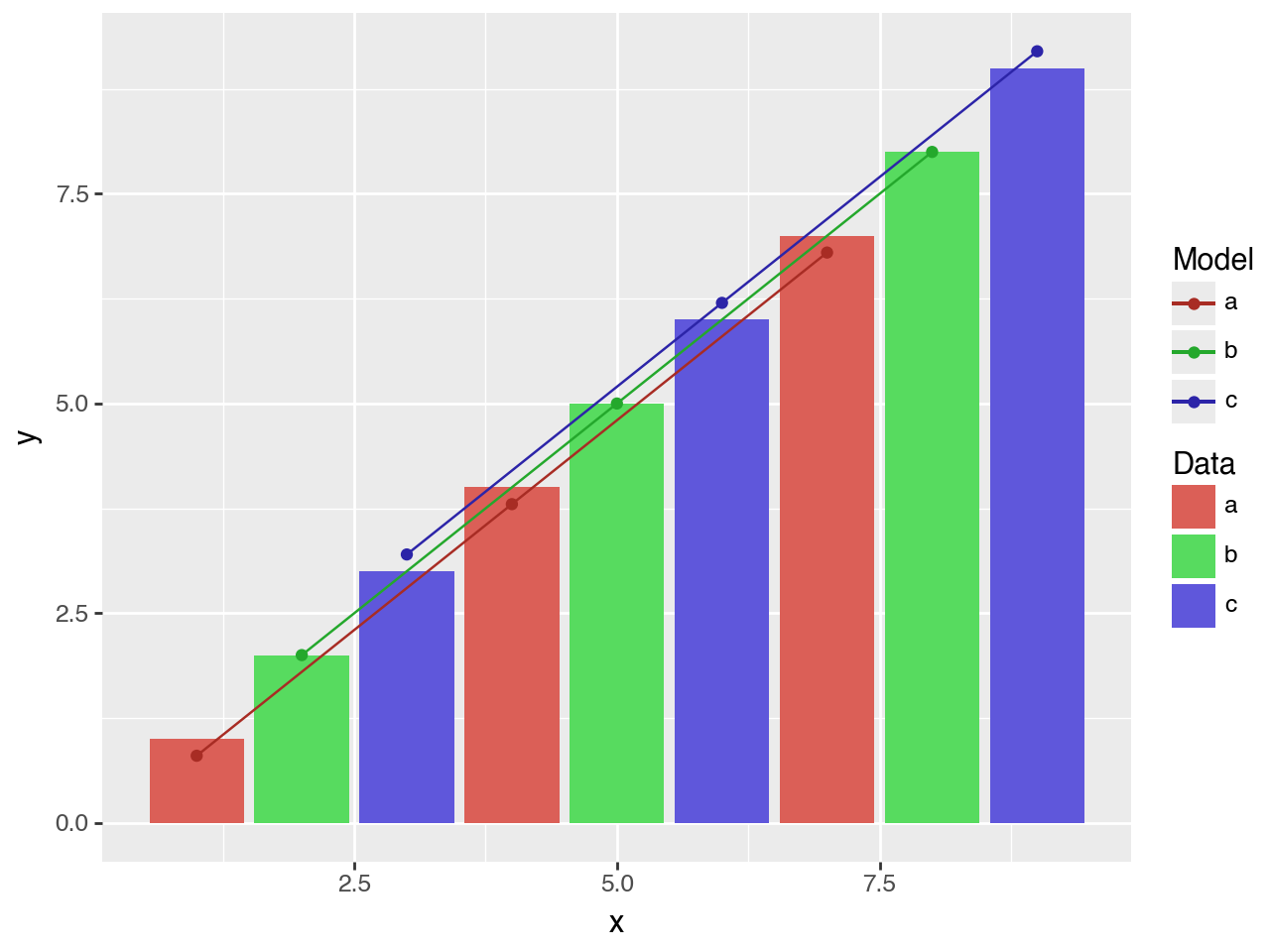import pandas as pd
import numpy as np
from plotnine import (
ggplot,
aes,
geom_path,
geom_point,
geom_col,
labs,
scale_color_discrete,
scale_fill_discrete,
guides,
guide_legend,
)In [1]:
Make some data
In [2]:
n = 9
df = pd.DataFrame(
{
"x": np.arange(1, n+1),
"y": np.arange(1, n+1),
"yfit": np.arange(1, n+1) + np.tile([-0.2, 0, 0.2], n // 3),
"cat": ["a", "b", "c"] * (n // 3),
}
)Draw an initial plot.
In [3]:
(
ggplot(df)
+ geom_col(aes("x", "y"))
)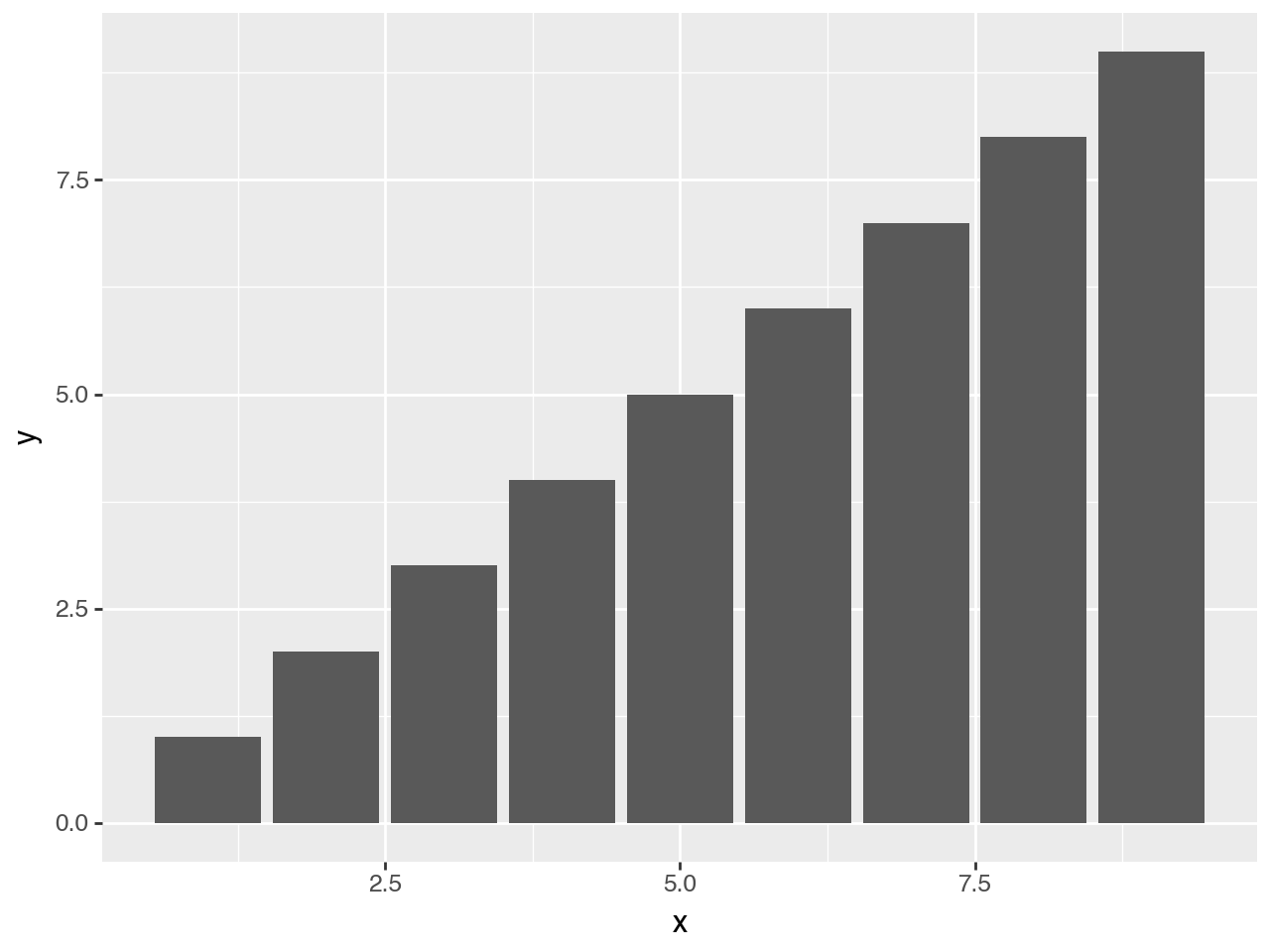
Mapping the fill to a discrete variable uses the default color palette from the scale_fill_discrete
In [4]:
(
ggplot(df)
+ geom_col(aes("x", "y", fill="cat")) # changed
)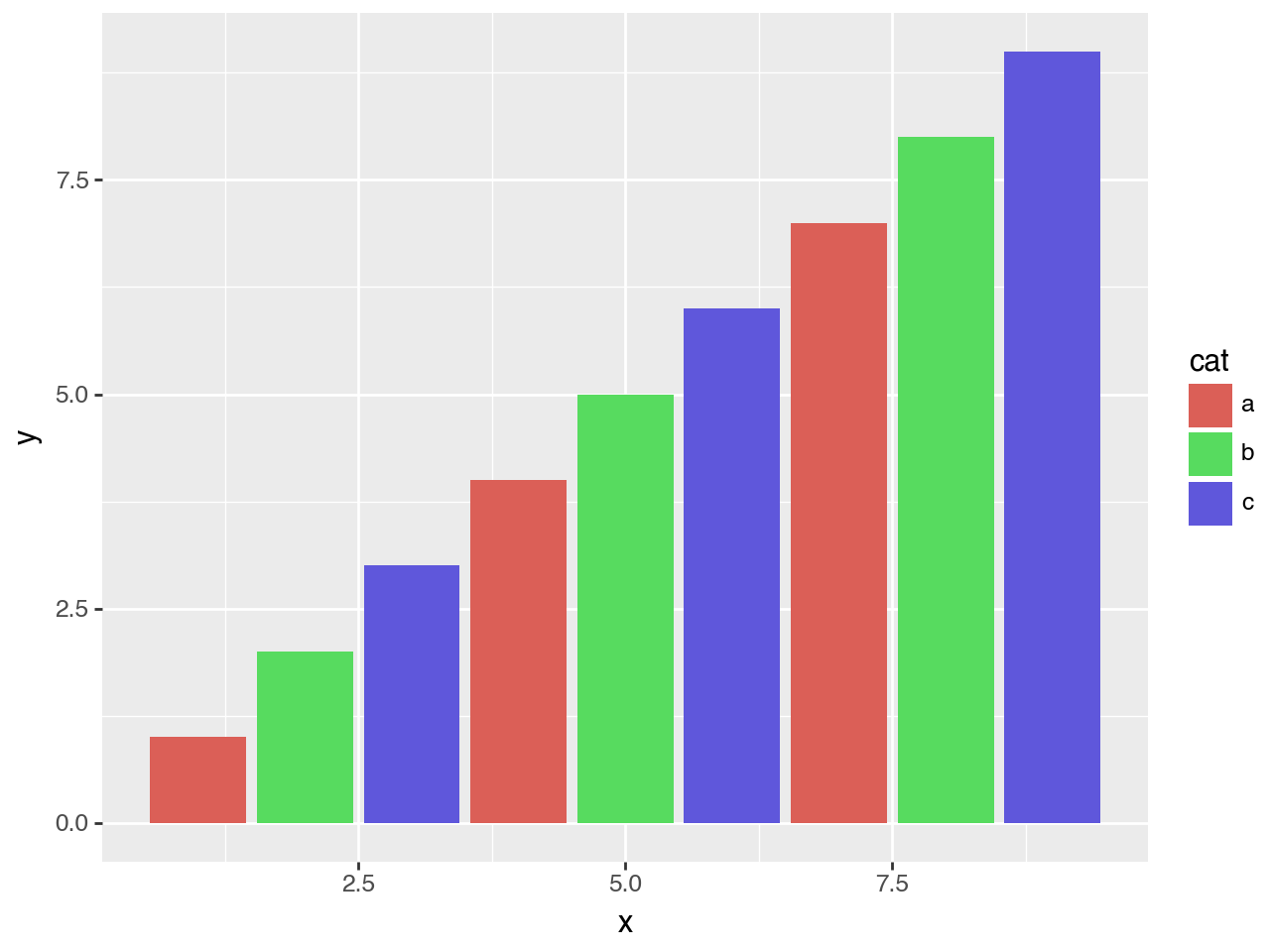
Assuming we want to visualise a “model” on top of the data. We could add this model data as points and a path through the points.
In [5]:
(
ggplot(df)
+ geom_col(aes("x", "y", fill="cat"))
+ geom_point(aes("x", y="yfit", color="cat")) # new
+ geom_path(aes("x", y="yfit", color="cat")) # new
)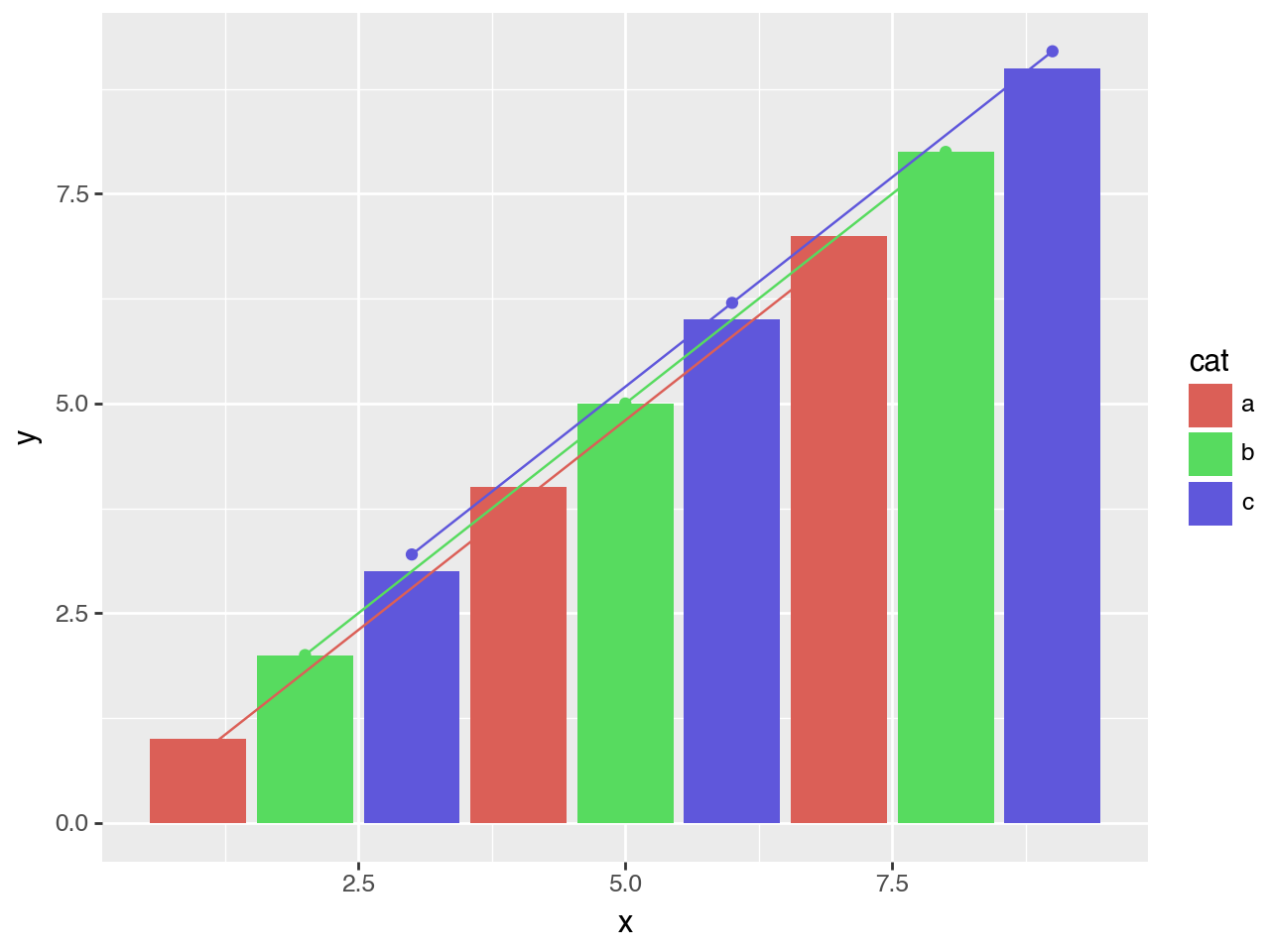
There is a clash of colors between the actual data (the bars) and the fitted model (the points and lines). A simple solution is to adjust the colors of the fitted model slightly. We do that by varying the lightness of the default color scale, make them a little darker.
In [6]:
(
ggplot(df)
+ geom_col(aes("x", "y", fill="cat"))
+ geom_point(aes("x", y="yfit", color="cat"))
+ geom_path(aes("x", y="yfit", color="cat"))
+ scale_color_discrete(l=0.4) # new
)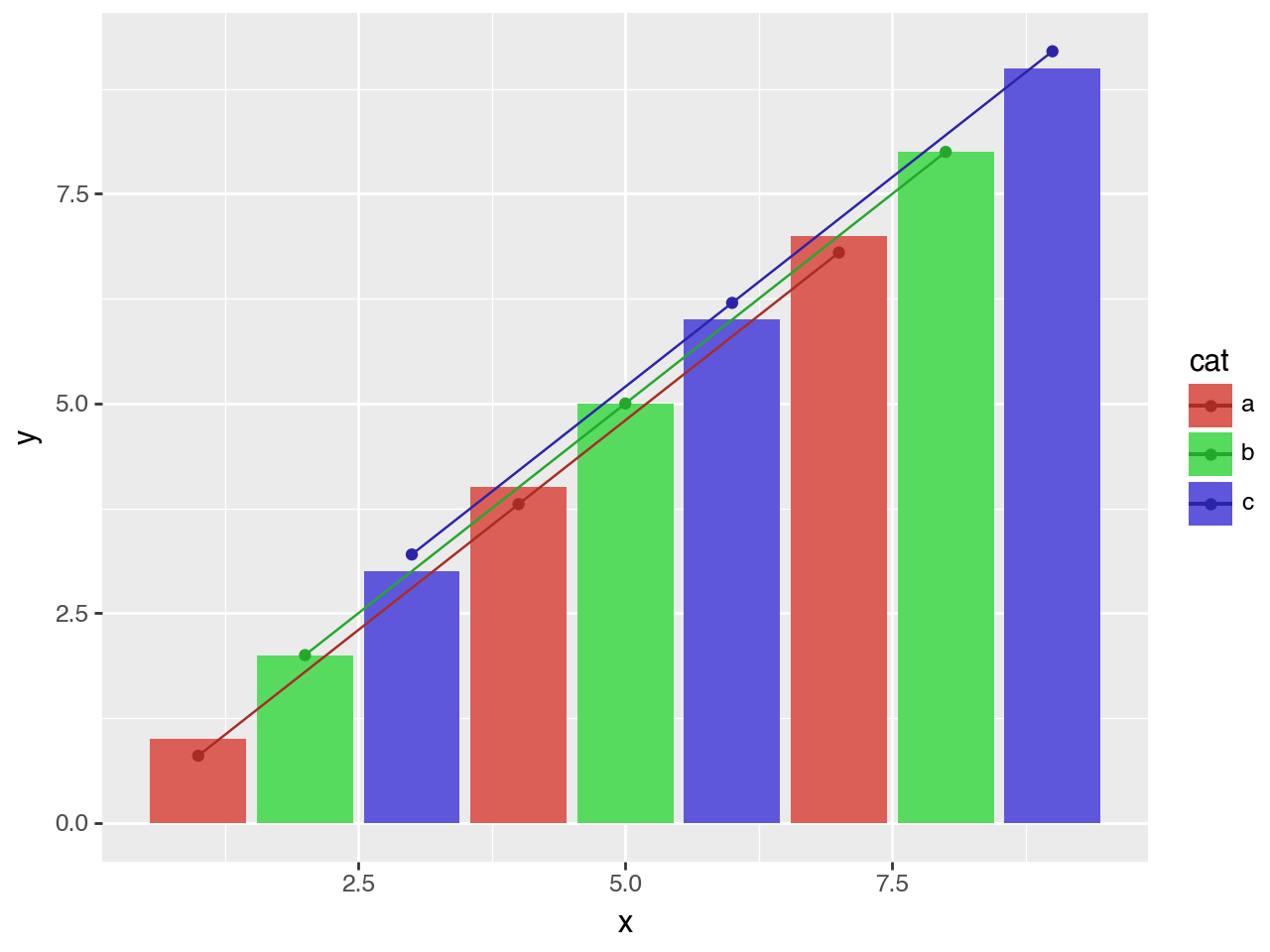
There are two main pieces of information in the plot, but we a single combined legend. Since we use separate aesthetics for the actual data and fitted model, we can have distinct legends for both by giving a name to the scales associated with each.
In [7]:
(
ggplot(df)
+ geom_col(aes("x", "y", fill="cat"))
+ geom_point(aes("x", y="yfit", color="cat"))
+ geom_path(aes("x", y="yfit", color="cat"))
+ scale_color_discrete(l=0.4, name="Model") # modified
+ scale_fill_discrete(name="Data") # new
)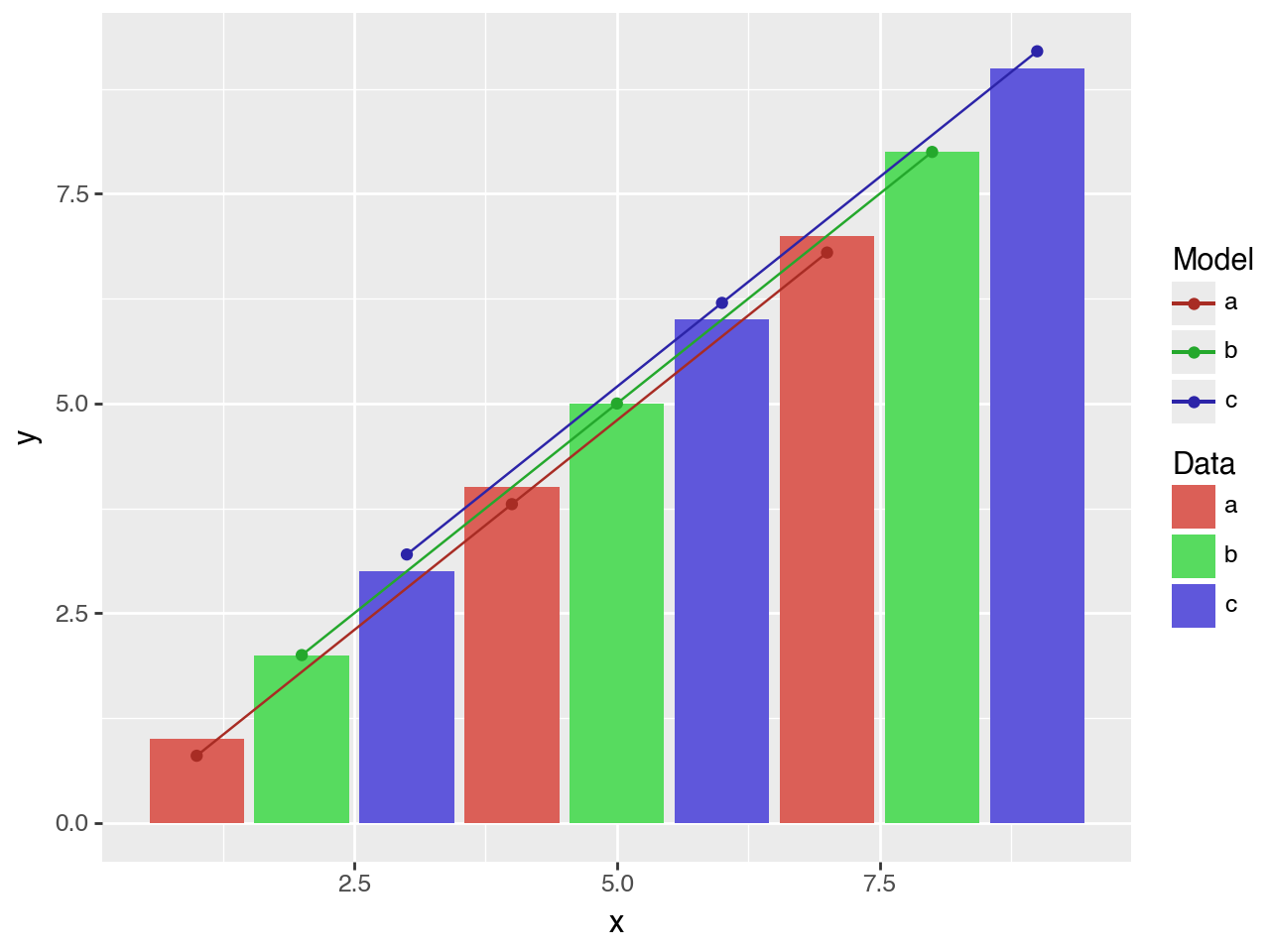
Alternatively, we could use the labs class to set the names.
In [8]:
(
ggplot(df)
+ geom_col(aes("x", "y", fill="cat"))
+ geom_point(aes("x", y="yfit", color="cat"))
+ geom_path(aes("x", y="yfit", color="cat"))
+ scale_color_discrete(l=0.4)
+ labs(fill="Data", color="Model") # new
)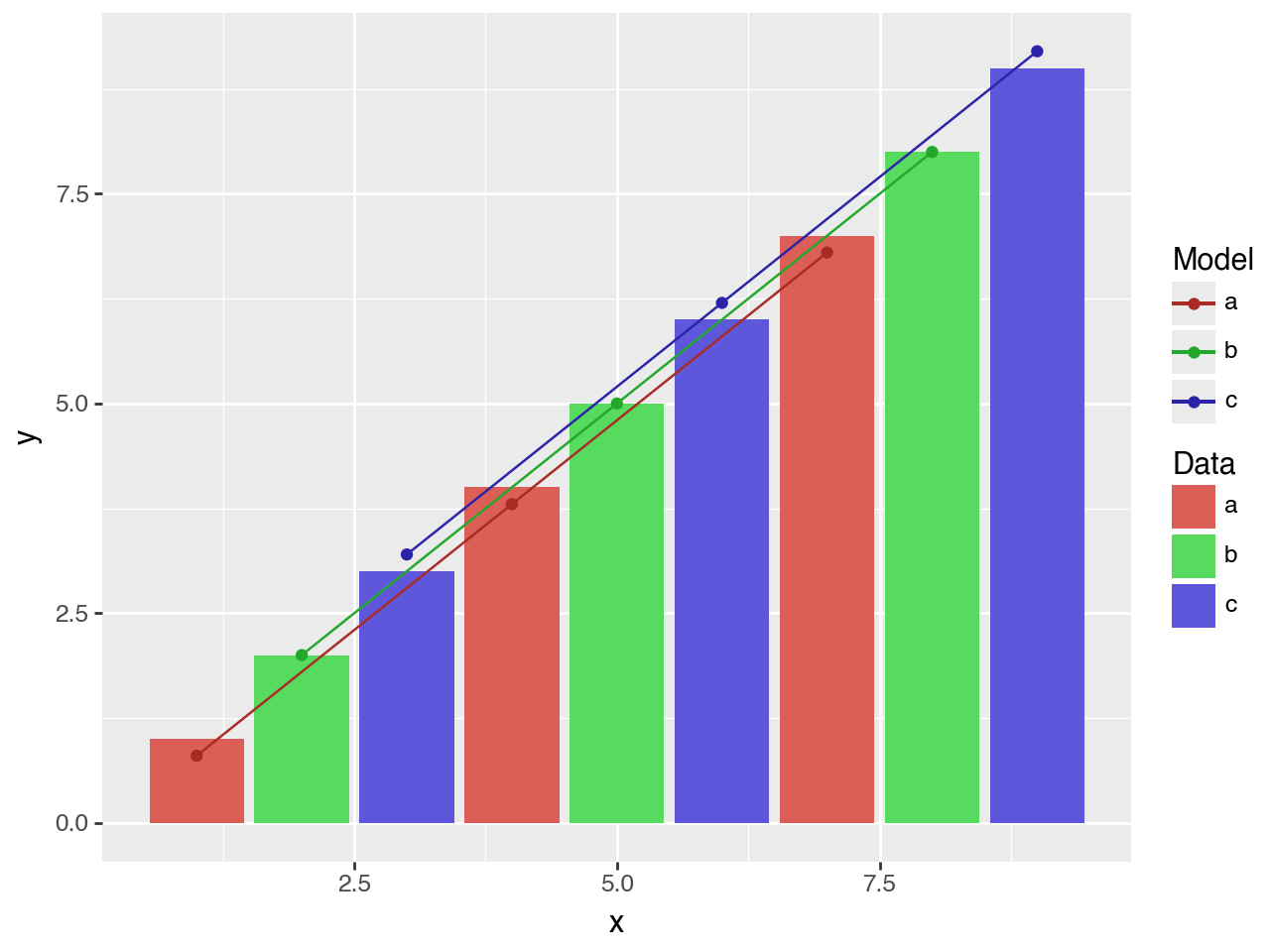
Or we could use guide_legend to rename the titles of the legends.
In [9]:
(
ggplot(df)
+ geom_col(aes("x", "y", fill="cat"))
+ geom_point(aes("x", y="yfit", color="cat"))
+ geom_path(aes("x", y="yfit", color="cat"))
+ scale_color_discrete(l=0.4)
+ guides( # new
fill=guide_legend(title="Data"), color=guide_legend(title="Model")
)
)